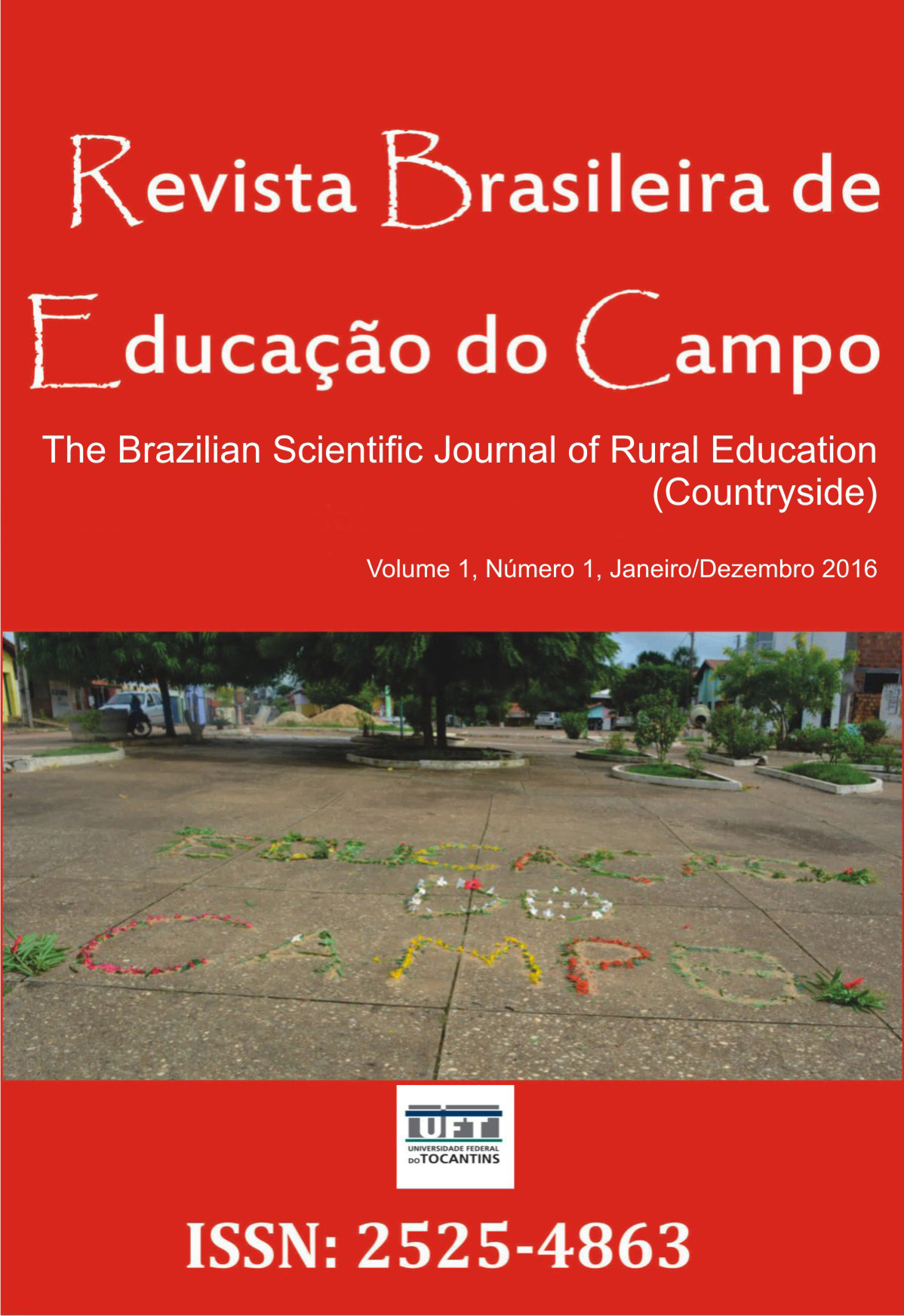High School Course Integrated with Technical Professional Educational in Agroecology and resistance of countryside, the case of 25 de Maio School, Fraiburgo (SC)
DOI :
https://doi.org/10.20873/uft.2525-4863.2016v1n1p107Mots-clés :
Agroecologia, Agronegócio, Educação do Campo, Ensino Médio,Résumé
ABSTRACT. The article discusses the high school education challenges that integrates education and work in the context of Rural Education. This theme is part of the master degree research that analyzed the High School course integrated with technical professional educational in Agroecology of the School 25 de Maio, located in the rural community of Vitória da Conquista, Fraiburgo/SC. The study used qualitative research methodology by applying a questionnaire to one of the graduates class of the school and interviews with four graduates in order to evidence the practice of the pedagogical and philosophical principles of the school Political Pedagogic Project (PPP). The results demonstrated that there is coherence between the principles and practices built and lived by the students, especially when it relates to: democratic direction; the relationship between education, work and culture; the participation in social movements as a formative element; the agroecology as part of a countryside project based on sustainable relationship between humans and nature; the close relationship between family and school and the link between theory and practice.
Téléchargements
Références
Alencastro, I. P. (2009). Projeto Político-Pedagógico e gestão democrática: novos marcos para a educação de qualidade. Revista Retratos da Escola, 4(3), 163-171.
Burke, T. J. (1994). Fraiburgo do machado ao computador. Curitiba, PR: Gráfica Vicentina.
Caldart, R. S. (2000). Pedagogia do Movimento Sem Terra: escola é mais do que escola. Petrópolis, RJ: Vozes.
_______. Sobre Educação do Campo. In Santos, C. A. (Org.). (2008). Educação do Campo: campo – políticas públicas – educação. Brasília: INCRA/MDA.
Freitas, H. C. A. (2011). O curso técnico em agropecuária da Escola 25 de Maio: conflitos em torno da construção da proposta agroecológica. Revista Brasileira de Agroecologia. (6), 13-29.
Frigotto, G.; Ciavatta, M., & Ramos, M.; (2009). Vocational Education and Development. In: UNESCO. International Handbook of Education for Changing World of Work. Bonn, Germany, UNIVOC, 1307-1319.
Frigotto, G., Ciavatta, M., & Ramos, M. (2012). Ensino Médio Integrado: Concepção e contradições. São Paulo: Cortez.
Frigotto, G. (2013). Ensino Médio e técnico profissional: disputa de concepções e precariedade. Le Monde Diplomatique. http://www.diplomatique.org.br/artigo.php?id=1384. Acesso em 13 de julho de 2016.
Kuenzer, A. (2001). Ensino de 2º grau: o trabalho como princípio educativo. São Paulo, SP: Cortez.
______. (2006). A educação profissional nos anos 2000: a dimensão subordinada das políticas de inclusão. Educação e Sociedade, (27), 877-910.
_______. (2009). Ensino Médio: construindo uma proposta para os que vivem do trabalho. São Paulo, SP: Cortez.
Medeiros, L. S., & Leite, S. P. (2012). Agronegócio. In Caldart, R. et. al. Dicionário da Educação do Campo. Rio de Janeiro e São Paulo, SP: Escola Politécnica Joaquim Venâncio e Expressão Popular.
Mohr, N. E. R., & Mohr; M. F. (2007). Criação do curso técnico em agroecologia na Escola 25 de Maio: uma história coletiva de subversão à ordem. In Lenzi, L. H. C. et al. Formação de educadores em EJA no campo. Florianópolis: NUP/CED/UFSC.
Rodrigues, R. (2010). O Ensino Médio no Brasil: da invisibilidade à onipresença. In Caldart, R. (Org). Caminhos para transformação da escola: reflexões desde práticas da licenciatura em Educação do Campo. São Paulo, SP: Expressão Popular.
Téléchargements
Publié-e
Comment citer
Numéro
Rubrique
Licence
Proposal for Copyright Notice Creative Commons
1. Policy Proposal to Open Access Journals
Authors who publish with this journal agree to the following terms:
A. Authors retain copyright and grant the journal right of first publication with the work simultaneously licensed under the Creative Commons Attribution License that allows sharing the work with recognition of its initial publication in this journal.
B. Authors are able to take on additional contracts separately, non-exclusive distribution of the version of the paper published in this journal (ex .: publish in institutional repository or as a book), with an acknowledgment of its initial publication in this journal.
C. Authors are permitted and encouraged to post their work online (eg .: in institutional repositories or on their website) at any point before or during the editorial process, as it can lead to productive exchanges, as well as increase the impact and the citation of published work (See the Effect of Open Access).














